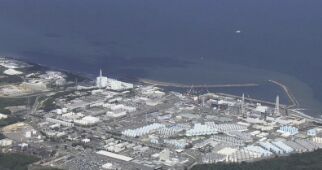China Hits Back: Imposes Ban on Japanese Seafood Imports over Fukushima Fallout Concerns
China retaliates against Japan's decision to release Fukushima wastewater by imposing a ban on all seafood imports, citing concerns over radioactive contamination and consumer health. This escalates tensions and threatens Japan's fishing industry.
China has retaliated against Japan's decision to release treated radioactive wastewater from the Fukushima nuclear plant by imposing a ban on all seafood imports from Japan. The move escalates the tensions between the two neighbors and comes after strong objections from many consumers and other regional countries. In response, China's customs department announced the ban, stating that it aims to prevent the risk of radioactive contamination in food and protect the health of Chinese consumers. This ban could potentially extend beyond seafood to include other oceanic products such as sea salt and seaweed.
Japan has argued that the release of the treated water is safe and necessary, as space is running out to store the contaminated material. The discharge of the treated wastewater began on Thursday and is expected to continue over a 17-day period. Japan's 2011 earthquake and tsunami caused water within the Fukushima nuclear plant to be contaminated with highly radioactive material, and since then, new water has been pumped in, creating more radioactive wastewater. Despite support from some governments, including the US, China and Pacific Islands have strongly opposed the release, citing potential threats to human health and the marine environment. Chinese social media has been filled with anger and calls for a complete ban on all Japanese products.
The ban on Japanese seafood imports from China and Hong Kong, which represents Japan's top two biggest export markets for seafood, spells potential trouble for the Japanese fishing industry. Nevertheless, Japanese authorities and their international supporters, including the United Nations' nuclear watchdog, argue that the release of the treated water is safe, as it has been continually treated to remove harmful elements and will be heavily diluted with clean water before reaching the Pacific Ocean. The International Atomic Energy Agency will monitor the discharge to ensure it meets safety standards.




